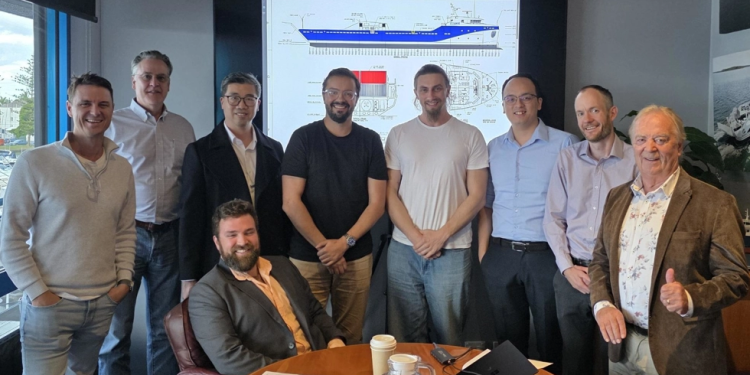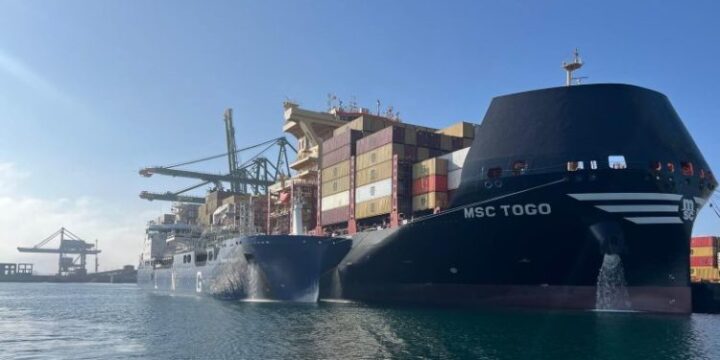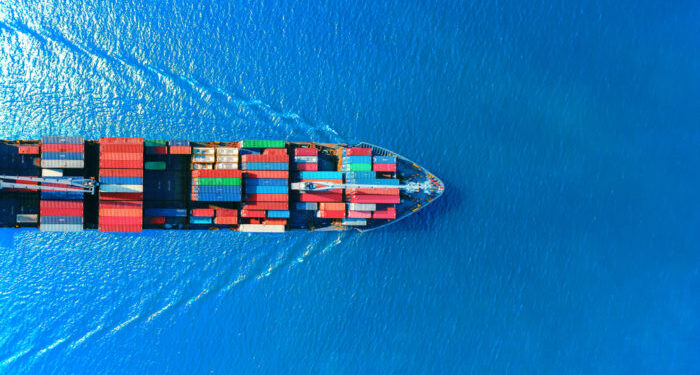July 7, 2025

Lloyd’s Register (LR) has conducted a Hazard Identification (HAZID) workshop to evaluate the potential risks and operational factors for modular micro reactor (MMR) nuclear technology in maritime settings.
The international workshop, in collaboration with Queensland’s ship design group Seatransport and Houston-based Deployable Energy, brought together multidisciplinary experts at Seatransport’s headquarters on the Gold Coast in Australia. `The session focused on risk management strategies, safety systems, regulatory frameworks, and vessel design implications, aiming to clarify certification pathways and compliance benchmarks.
With safety and regulatory integrity at the forefront, the workshop offered key insights into the feasibility and requirements for operational readiness, once the vessel meets nuclear licensing requirements.
Generally, a surge in partnerships, regulatory efforts, and technological progress indicates growing support for the adoption of next-generation reactors in commercial shipping. For instance, recognizing significant advancements in nuclear technology in recent decades, MSC 110 concluded that the existing Nuclear Code (Resolution A.491(XII)) is outdated and requires a comprehensive revision to remain effective and relevant. Notably, the current Code does not address emerging technologies such as Small Modular Reactors (SMRs) or the All-Electric Ship concept.
MMR technology not only reduces our dependence on traditional fossil fuels but also provides a reliable, long-term energy source that can support both operational and emergency needs in remote and underserved regions
… said Matt Palmer, Global Nuclear and Naval Submarines Segment Director at LR.
The workshop is part of a collaboration between Seatransport, Deployable Energy and LR, a global professional maritime services group, to develop nuclear power generation for different applications, including propulsion and strategic emergency response in remote areas.
By bringing together leading experts in the field, we have not only identified the key challenges but also outlined strategic solutions to overcome them. These will now be incorporated into the vessel design. This collaborative effort has significantly strengthened our partnership and set a clear path for future advancements using MMR technology for sustainable maritime energy solutions
… commented Remko Hottentot, LR Commercial Manager – Australasia.
Using micro modular reactor (MMR) technology, two MMRs will provide the 73-metre stern loading vessel power enabling the vessel to operate for 8-10 years without refuelling and supply power to shore grids during port docking or in affected zones.
In my many years advocating nuclear propulsion, I believe now for commercial ships it is within reach and will be commonplace by 2030. My thanks for all visionaries working in this space
… noted Dr Stuart Ballantyne, Chairman of Seatransport.
Finally, Bobby Gallagher, CEO and CTO Deployable Energy, highlighted that deployable Energy is proud to be advancing toward Approval-in-Principle for the hybrid-powered Stern Landing Vessel.

